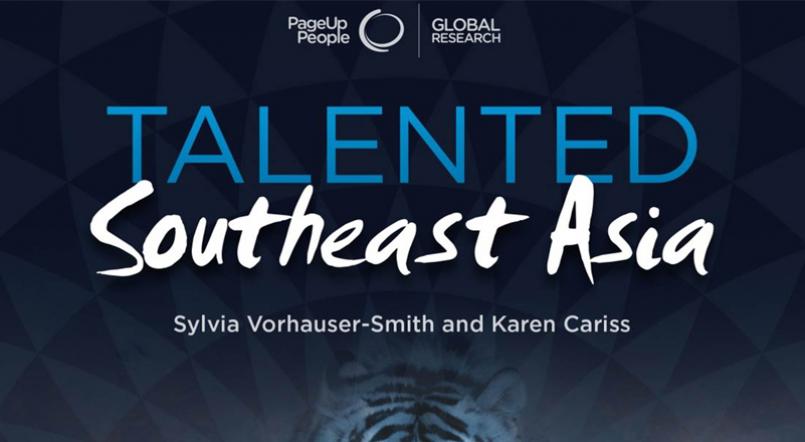Please click this link to register today for the exclusive book launch and lunch of Talented Southeast Asia (a limited number of free places are available friends of HCLI).
By 2050 Asia will account for 45% of the world’s population and 52% of the global workforce. By comparison, North America, South America and Europe combined will house only 21% of the world’s workers. Demand for top talent in Asia exceeds current and forecast supplies by 61% and is rapidly depleting the region’s talent pools. Serious skills shortages matched with aggressively competitive sourcing strategies create a constant tug-of-war for top people.
But the facts tell only half the story. The incredible potential in this region comes from the growing and largely untapped talent of millions of young, aspiring, tech-savvy and socially networked individuals that are ready, willing and able to take on the challenges of the new world. Fresh minds and passionate people will seek and use technology and science as their tools of trade and find new ways to propel emerging countries into the future.
How can organisations prepare themselves to succeed in this exciting but challenging environment?
In Talented Southeast Asia, business and HR leaders of multinational firms address what it takes to galvanise and engage their Southeast Asian workforces to get great business results. It gives voice to over 50 global firms operating in the region to provide a first-hand account of what works, doesn’t work or should be completely overhauled.
In the book foreword, HCLI Chief Executive Officer, Kwan Chee Wei writes:
“Unfortunately, as all business leaders and HR practitioners operating in Southeast Asia can attest to, there is simply a dearth of skilled talent and leadership capability within the region. Outside of Singapore, education standards are largely below what is required for roles within multinationals. The diversity of the region – be it in history, ideology, religion, language and outlook – also requires customised solutions for each country market.”
In addition to extensive research into the talent management practices of over 50 multinational organisations operating in the region, Talented Southeast Asia also presents new thought leadership and challenges entrenched paradigms about talent and the workplace to identify six emerging trends. The first two of these trends are foreshadowed here, with the balance to come in the remainder of this series.
Trend 1: Talented Earth
Globalisation of the world’s human resources will dissolve sovereign borders in the hunt for talent.
Local organisations have been expanding into multinational firms for the past few decades: similarly the new generation of workers is building out multinational careers. International mobility is already seen as a ‘right of passage’ for top young talent, who are ready, willing and able to pursue career choices around the globe.
This trend highlights that competition for talent, which is often viewed as a local market challenge, is becoming a global phenomenon and employers are not only sourcing from local talent pools, but increasingly widening the net beyond national boundaries in the search for the skills they need. Employees are responding by linking their career aspirations with their desire for travel, promotions and world experience. This trend for nomadic career paths helps build a global mindset, which is a critical competency for tomorrow’s leaders.
Employees are responding by linking their career aspirations with their desire for travel, promotions and world experience. This trend for nomadic career paths helps build a global mindset, which is a critical competency for tomorrow’s leaders.
Trend 2: Work Reinvention
The nature and execution of work is being remodelled to remove obstacles to participation, performance and productivity.
There is a perfect storm brewing that will change the course of the modern workplace. It combines the factors of generational change, the global redistribution of economic power and the technological revolution in an unstoppable groundswell that is forcing organisations to re-think how, when and where work gets done.
This trend began over a decade ago with a steady movement toward increased workplace flexibility, to suit both employers and employees. But conditions are now becoming ripe for the revolution of work beyond such simple incremental steps. Virtual workplaces with virtual workers will increasingly undermine traditional workplace models and leaders have yet to master talent management in this environment. This trend will change the face of the workplace and is loaded with significant opportunities and risks for organisations in future.
The dynamic markets of Southeast Asia call for new ideas and approaches to the challenges of achieving great business results through an organisation’s human capital. Talented Southeast Asia identifies numerous fresh ways multinationals can mix best practice global methods with regional adaptations or altogether reinvent how their workforce talent is underpinning great business results.

The launch of the book “Talented Southeast Asia” is a premier event to be held at Raffles Singapore, on March 11, 2014. In recognition of HCLI’s association with this important work, friends of HCLI are invited to attend the launch, meet the authors, hear from contributors and industry leaders and join them all for a networking lunch.
Register for this exclusive event today! You can also download a free chapter of the book at this link.



There is 1 Comment